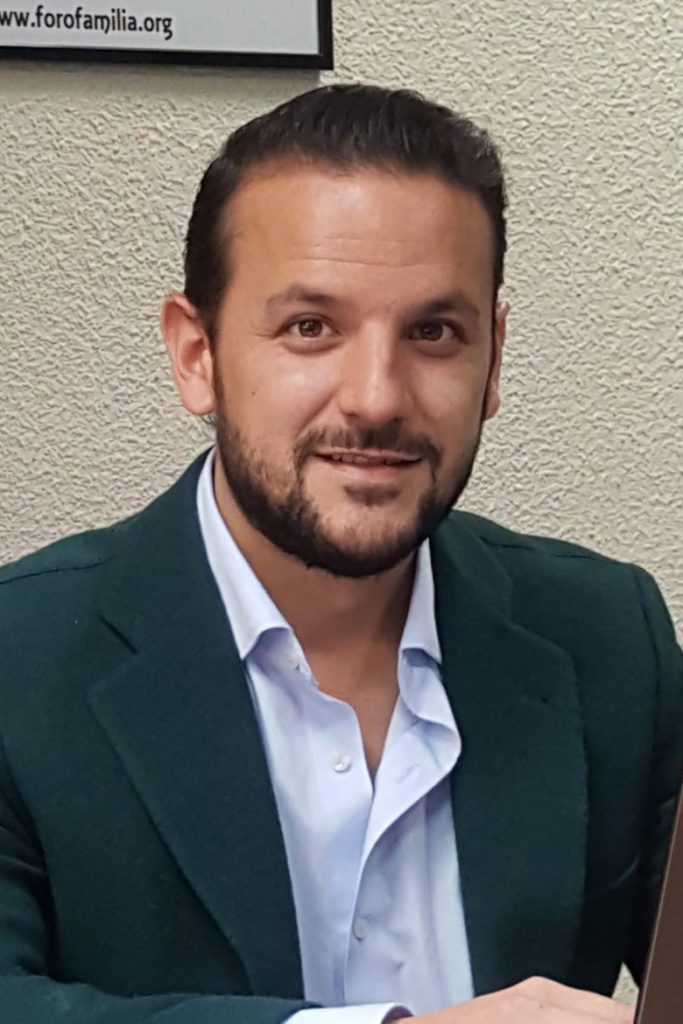




















The Pontiff inaugurated a few days ago in Italy the so-called States General of Birth, promoted by the Forum of Family Associations. The event was attended by the Italian Prime Minister, Mario Draghi. "Without a birth rate there is no future," said the Pope. We must "reverse" this trend to "put Italy back on the move, starting from life, starting from the human being," Francis added at the beginning of his speech.
"Italy has had for years the lowest number of births in Europe," the Holy Father noted, "which is being signified in the old continent no longer by its glorious history, but by its advanced age. This country of ours, in which every year it is as if a city of more than two hundred thousand inhabitants disappears, reached in 2020 the lowest number of births since national unity: not only because of Covid, but because of a continuous and progressive downward trend, an increasingly harsh winter."
In view of this speech, and with the data provided by Pope Francis, it seemed logical to talk in Spain with an authoritative voice on family and birth rate issues, Javier Rodríguez, general director of Foro de la Familia, an association of associations representing the family and the birth rate. more than 4 million Spanish families.
The Pope quoted in his speech the President of the Italian Republic, Sergio Mattarella, when he pointed out that "families are not the connective tissue of Italy, families are Italy". The Family Forum has proposed 50 family policy measures. Tell me about them.
-These are measures that we are requesting from the Forum. That policies be made to invest in families. We have a document on family policy measures at the national level, as well as theThe first one, for the competencies of the central government, which are 50; then we have 100 regional family policy measures; and we also have 25 local ones. They are elaborated by a group of experts: some have contributed in fiscal matters, others in the field of education; support for life and mothers; access to housing, leisure, etcetera. We put the measures at the disposal of all the parties, so that they can incorporate them.
It is often said that governing means prioritizing, among other factors. If you had to send a message to Spanish society, what would you highlight now?
–We have been asking for many, many years, and there is still no comprehensive family law, at the central government level, which brings together all the criteria, with a family perspective that inspires the laws, and which recognizes the fundamental role of the family in society. And secondly, a pact of State, or two, between all the political parties. One for motherhood and the birth rate; and another for Education, which recognizes freedom, and does not depend on the governments of the day. Let us give children and their parents a more stable framework, which does not change every four or eight years. This for the laws.


And then, thinking of society, that it has criteria, that it does not allow itself to be carried away by fashionable currents, which so often are well watered financially speaking, and can be self-destructive for the human being, for the family, for the dignity of persons. There are things that are good regardless of wills and fashions, and we must be able to recognize what is good, to protect and defend it.
- Investing in family. It is widely recognized that in recent crises, the family has been the network on which many have relied. In times of unemployment and hardship, grandparents, parents and siblings are there to lend a helping hand. Is this being recognized through concrete measures?
- Last year, with the confinement, and when the economic crisis began to appear again, it was the family again, which always emerges as a lifeline, as a network. It is in the family that each one acquires his full potential, and in the family one is loved for who he is, not for what he thinks or for what he earns. There we always find help and a home.
What we say is that this sacrifice does not have to be demanded by the public authorities, because we each take care of our own family. That is, we are going to do it even if they do not ask us to do it. But what we do ask for is recognition. What is not coherent is to demand sacrifice from those who do not make any kind of sacrifice. We should all be in the same boat.
The Pope criticized the situation in which so many women find themselves at work, fearful that a pregnancy could lead to dismissal, to the point of hiding their belly, and launched a cry: "Women, don't hide your belly! Tell me about life, and about abortion, which continues to have dramatic figures in Spain (almost one hundred thousand abortions per year).
- Now there are many public facilities to end life, and yet there are none to continue with life for those who want to continue and encounter difficulties. The only supports are private initiatives. We therefore encourage the existence of a public network to help those who want to continue and protect a pregnancy and are in difficulties. These mothers should also find public support, not only the way out. It is the same with the end of life, with euthanasia. The only "solutions" proposed are to abandon, and those who do not want to abandon, how do we help them, with measures respectful of life and dignity?
We therefore encourage the existence of a public network to help those who want to continue and protect a pregnancy and are in difficulty.
Javier Rodriguez.Director General of the Family Forum
The Pope has described the Italian situation as a "demographic winter". You referred a few days ago on TRECE tv to the alarming fertility rate in Spain, 1.24 children per woman, which does not reach the generational replacement, and which has been going on for years. Sometimes it is argued that having more economic capacity, more income per capita, will improve the birth rate. However, there are countries with lower income that have a higher fertility rate. What do you think?
- There is no need to go to other countries. This has happened in Spain. We can look at years in which there was a generational replacement while the labor and economic situation was worse.
It's all very well to have more work-life balance, more tax facilities, more affordable housing, more stable employment..... But from a cultural point of view, the mentality of not facing commitments seems to be still there. Or not? Besides, this is a matter of the two of us?
- In fact, there is a widespread view that you have to have everything well tied up, that everything goes perfectly according to plan, that the economic situation is buoyant, etc., to start a family. However, this is not a common situation in life.
Life is a succession of often uncertain circumstances, which are often beyond our control, and there are conditioning factors that do not depend on what we want. So, if you are going to wait to start a family to have everything perfect as planned, I don't know if it will be enough...; but it is the chip that is now widespread.
We believe that investing in the family, even on a personal level, is worthwhile, much more than in anything else. Then, one adapts to everything, and with good support, also on the part of the public authorities, with a favorable climate for motherhood and the family, everything would be easier.
What difficulties do you see for this State Pact for Motherhood and Childbirth, and would you also include civil society?
Of course. We are thinking of a State pact that includes political parties as well as civil society agents, companies, trade unions, the media, sports institutions, everything. A State pact with all the social agents involved. What is preventing it? Lately we are seeing too many irreconcilable ideologies and too little work for the common good. As long as this does not change, it is difficult. We always encourage the abandonment of ideologies to work for the common good. What difference does it make who anyone votes for, or what they think, or what they believe, or what race they are, if the family is good for everyone, regardless of their personal circumstances and the circumstances of each household.
Therefore, let us make a family law, independent of ideologies, let us make a State Pact on Education, independent of ideologies, and let us respect some minimums, and let us work to advance in aspects that are good for all, and the details will be up to each one of us. But the minimum aspects must be guaranteed.
What difference does it make who anyone votes for, or what they think, or what they believe, or what race they are, if the family is good for everyone?
Javier Rodríguez. General Director of the Family Forum.
We are done. We could spend hours talking with Javier Rodriguez, because the topics are deep. It is enough for today to stop at the website of the Family Forum (forofamilia,org), where we can find many suggestive ideas.
The Pope has just provided us with a few from Italy. For example, the primacy of the gift of life, which we are called to pass on; economic, technological and environmental sustainability, of course, but also "generational sustainability," the Holy Father stressed; and a "structural" solidarity, that is, "not linked to emergency but stable for structures to support families and help births."












